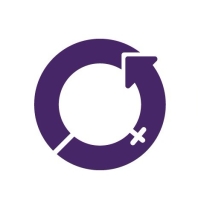
By Alice McNeill, Teacher of Religious Studies and Philosophy
International Women’s Day (IWD) is perhaps especially salient this year as we celebrate the 100th anniversary of near-universal suffrage, although this in itself begs some uncomfortable questions about whether we have made enough progress in the last century.
‘Press for progress’ is the theme of this year’s IWD, and this captures the renewed energy and determination we need to have in order to honour the sacrifices made by those fighting for equality before us. IWD is a great opportunity to reflect on where we are and where we need to get to. This is especially important for us in schools. Are our classrooms equal? Where are our unconscious biases? Are we accepting culturally embedded norms of gender stereotyped behaviours? Do we call out sexism?
Emma Stone faced a huge backlash this week for commenting on unequal representation in the Best Director category at the Oscars. High profile female MPs and academics are similarly shamed when they dare to speak out about sexism. Is this echoed in our schools? All educators need to ‘press for progress’ by daring to ask these questions. Often, there is no straightforward answer, but in the very act of questioning, we push for a more honest and equal environment.
There is a huge push for more girls to enter STEM careers, which is excellent, but why, in 2018, does there need to be such a push? Why have we not got to a position of gender blindness? Surely, this would be the most empowering position for everyone?
By Abi Wharton, Head of Global Awareness
For this year’s IWD, we have continued to concentrate on period poverty in Global Awareness. This is not a new issue; people are aware of girls and women around the world who do not have the resources to afford sanitary products, highlighted in Ken Loach’s film I, Daniel Blake.
What is perhaps not so well known is that 1 in 10 girls aged between 14 and 21 in the UK cannot afford sanitary products and 137,000 girls have missed school in the past year due to period poverty. We understand the vulnerability associated with this stage in a young woman’s life and this increases anxiety and a feeling of a lack of self-worth. The stigma attached to periods means that this subject is still taboo, making the problem even worse. On International Women’s Day we must work to end the stigma and begin campaigning for free sanitary products for girls in low-income families to follow Scotland’s lead. Take a look at #EndPeriodPoverty and expect a campaign and potential solutions from GA students soon.
